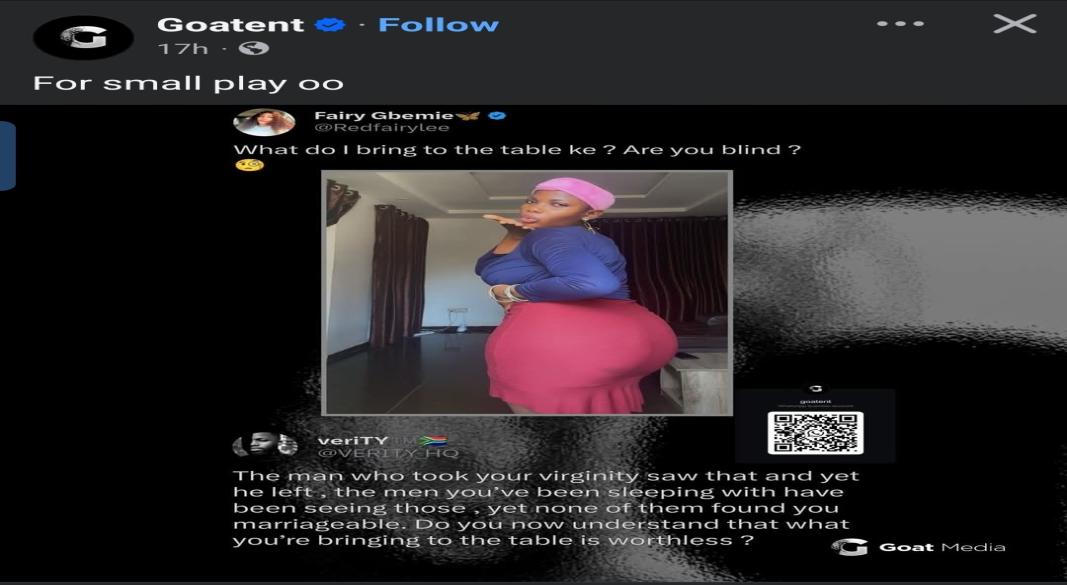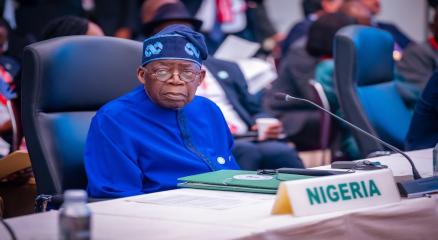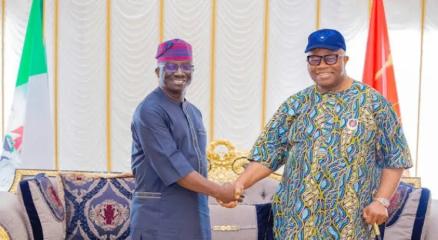
Social media went ablaze yesterday after a trending post shared by Goatent on Facebook stirred strong reactions from both men and women across the internet.
The viral post features a screenshot of a young lady, Fairy Gbemie, who confidently posed and asked, “What do I bring to the table ke? Are you blind?” — suggesting that her beauty alone should be enough proof of her value in a relationship.
However, another user replied sharply, sparking controversy. The response read:
“The man who took your virginity saw that and yet he left. The men you’ve been sleeping with have been seeing those, yet none of them found you marriageable. Do you now understand that what you’re bringing to the table is worthless?”
The comment ignited an online war of opinions as users across platforms debated relationship expectations, gender roles, and modern dating values.
Mixed Reactions Online
While some users defended the lady, saying confidence and self-love are important in today’s world, others agreed with the response, arguing that physical appearance alone cannot sustain meaningful relationships or long-term commitments.
Many women supported the original poster, noting that men often expect perfection but fail to match the same energy or effort in relationships. One user wrote:
“Every time it’s ‘what do you bring to the table?’ Men need to realize women are not job applicants. Love is not an interview.”
On the other hand, a few men sided with the reply, insisting that “beauty without character, vision or emotional maturity” cannot build a home. A popular comment read:
“Social media beauty fades quickly when reality hits. If you don’t add value to your partner’s life, the looks won’t last.”
The “Table” Question: A Never-Ending Argument
The phrase “What do you bring to the table?” has become one of the most repeated lines in modern relationship conversations. It represents the growing expectation that both partners should contribute meaningfully — not just emotionally or physically, but also mentally, financially and spiritually.
In Nigeria and across Africa, where traditional gender roles are shifting rapidly, such online arguments highlight the tension between old Cultural expectations and modern values. Many young people now want relationships built on partnership, not dependency, but these ideals often clash with social media narratives that glorify money, beauty and luxury lifestyles.
Experts Weigh In
Relationship coaches and psychologists have also commented on the issue. According to Lagos-based relationship counselor Dr. Ifeanyi Okorie, the “table” question is not inherently bad — it’s the tone that causes conflict.
“When people ask what you bring to the table, they’re really asking if you’re ready to build together. But online, it’s turned into a battle of egos and insecurity,” he explained.
He further advised that people should focus more on emotional intelligence, communication, and shared values rather than looks or material benefits.
Social Media’s Role
The viral Goatent post once again shows how fast social conversations spread in the digital age. Within hours, Thousands of Nigerians, South Africans, and Ghanaians joined the thread, creating memes, short videos, and live discussions around the topic.
Platforms like Facebook, X (formerly Twitter), and TikTok have become the new public squares where cultural debates take center stage. While some believe this encourages openness, others argue that online spaces promote more division and judgment than Understanding .
Conclusion
The “What do you bring to the table?” question may never have a single answer. To some, it’s about love and loyalty; to others, it’s about contribution and balance. But one thing is clear — social media continues to shape how today’s generation views relationships, self-worth, and value beyond physical appearance.
As the conversation continues, one can only hope people learn to find balance between confidence, contribution, and character — because at the end of the day, love isn’t just about what’s on the table, but what both people build together.
Nigerian striker Victor Osimhen lit up the Champions League with a landmark performance as his club secured a decisive victory. For fans of GistVibes, this moment adds another chapter to his growing legacy in European football. The Big Match Moment Playing away in a tough setting, Osimhen stepped up when it mattered most. His brace from the penalty spot, combined with a commanding header, helped his club dominate the match and send a strong message to Europe’s elite. His ability to calm nerves and deliver in high-pressure games stood out on show. Records Broken and Milestones Achieved With today’s showing, Osimhen climbed to the top of several record charts. He tied — and in some cases exceeded — previous Nigerian greats in European competitions. His consistency in scoring on the biggest stages shows a level of hunger and professionalism few reach. Impact Beyond One Game This isn’t just about one match. Osimhen’s form now speaks about a player who belongs at the very top. For his national team and for every young striker looking up to him, his achievements offer belief that true star talent can make a global impact. For GistVibes readers, it’s a reminder that excellence is built over time, game by game. Looking Ahead While tonight’s win is a milestone, the real test comes in staying consistent. As more high-stakes matches arrive, the focus will shift to how Osimhen and his club carry this momentum forward. His next steps will matter for his legacy — and for all those cheering him on from home. Conclusion Victor Osimhen’s historic night adds to his reputation, and for GistVibes readers, it’s a proud moment for Nigerian football. He demonstrated talent, character and timing — a combination that builds legends, not just players.
INTRODUCTION Among the ancient tribes that shaped Nigeria’s cultural identity, few can rival the Esan people of Edo State — a community known for discipline, intellectualism, rich culture, and deep spiritual heritage. The Esan Tribe, sometimes mispronounced as Ishan by early Europeans, represents one of the strongest pillars of the old Edo civilization. From the sacred forests of Ewossa, Ekpon, Irrua, Ewohimi, Uromi, and Ekpoma to the bustling towns of Ubiaja, Igueben, and Oria, the Esan land (Esanland) tells a powerful story — of migration, freedom, resistance, and pride. But to truly understand Esan history, one must trace the roots back to the heart of the ancient Benin Empire, and how that empire’s internal conflicts gave birth to new independent Edo-speaking nations. 🏰 THE ORIGINS — ESCAPE FROM TYRANNY Historical accounts and oral traditions agree that the Esan people originated from migrant Edo (Benin) settlers who fled the old Benin Kingdom around the 15th century. During that time, some Obas (Benin kings) became increasingly authoritarian, imposing heavy labor, military conscription, and excessive tributes. The harsh conditions forced many families, warriors, hunters, and priests to flee eastward into the forests seeking peace and autonomy. These migrants established new communities in the highlands — the present-day Esanland. The word “Esan” itself evolved from the Benin term “E san fian”, meaning “They have fled.” But this was no act of cowardice — it was an act of defiance and courage, the birth of a free people determined to live by their own laws. ⚖️ THE STRUCTURE OF ESAN SOCIETY The Esan people built an organized and democratic system. Each settlement became a kingdom led by an Onojie (King), supported by councils of elders and chiefs. These Onojies were not absolute rulers like the Oba of Benin — they ruled through consensus, spiritual guidance, and moral authority. Each Esan kingdom — from Uromi to Ewohimi, Ekpoma, Ewossa, Ekpon, and Igueben — maintained internal independence, but they shared language, culture, and blood ties. This structure made Esanland one of the most stable pre-colonial societies in southern Nigeria. ⚔️ THE BENIN CONNECTION — BLOOD, WAR, AND ALLIANCE Despite their separation, Esan and Benin remained connected by blood and heritage. Many Esan Onojies were descendants of Benin princes, while others maintained friendly alliances through trade and marriage. During wars, Esan warriors often came to Benin’s aid — notably during conflicts against invaders from the north and neighboring Yoruba territories. However, this relationship was complex. Some Obas tried to reassert dominance over Esanland, leading to several wars. Yet the Esan always defended their autonomy fiercely, earning a reputation as fearless and loyal fighters. The Benin monarchy eventually respected Esan independence — understanding that Esanland’s loyalty came not from fear, but from kinship and honor. 🌾 LIFE AND CULTURE IN ESANLAND The Esan people are predominantly farmers, hunters, blacksmiths, and weavers. The fertile lands and rolling hills made agriculture the backbone of their economy. Crops like yam, cassava, cocoyam, maize, and palm produce sustained families and communities for centuries. Esan culture values hard work, integrity, and communal living. In every Esan town, from Idumuogo in Ewossa to Eguare in Ekpoma, neighbors treat one another as family. Respect for elders and ancestral heritage is deeply rooted in their worldview. 💫 SPIRITUAL LIFE AND RELIGIOUS BELIEFS Spirituality in Esanland is sacred, orderly, and symbolic. The supreme being, Osenobulua, is seen as the creator of all life — benevolent but just. Every Esan person is believed to have a guardian spirit called Ehi, which connects them to the ancestors and the divine. Families maintain shrines called Ukhure, where ancestral offerings and prayers are made. Traditional festivals like Ihuen, Ewere, and Iruen reflect gratitude, purification, and renewal. They include dancing, drumming, masquerades, and sacrifices that celebrate life and honor the spirits. 🏡 THE ROLE OF WOMEN IN ESAN SOCIETY Women play vital roles in Esan culture. They are not just homemakers but community builders, traders, and priestesses. In ancient Esanland, women organized market systems, led fertility rituals, and influenced political decisions. The Omu Esan (queen mother) held spiritual power and was regarded as the custodian of peace and prosperity. Even today, Esan women continue this legacy of strength — dominating education, healthcare, and politics within Edo State and beyond. 🎓 EDUCATION AND INTELLECTUALISM One of the most remarkable aspects of Esan identity is their love for education. From the early 20th century, Esanland produced some of Nigeria’s most accomplished scholars, teachers, and administrators. Names like Prof. Ambrose Alli, Chief Tony Anenih, Chief Tom Ikimi, and Dr. Christopher Okojie are remembered for their leadership and impact on Nigerian development. Education, for the Esan, is not just a pursuit of knowledge — it is a symbol of freedom and civilization. 🌐 LINKING ESAN WITH OTHER EDO-SPEAKING PEOPLES While Esan people developed their own unique identity, they are part of a greater Edo-speaking family — a linguistic and cultural network that includes Benin (Edo proper), Afemai (Etsako), Ora (Owan), and Akoko-Edo. Each group shares common Edoid language roots, belief systems, and historical ties to the ancient Benin civilization. However, Esan’s difference lies in their early independence and resistance, making them the only Edo-speaking group that built a confederation outside Benin’s direct control. Thus, the Esan story becomes a mirror — showing how freedom and unity can coexist with respect for tradition. 🕊️ COLONIALISM AND MODERNIZATION The coming of the British in the late 19th century changed everything. Colonial officers imposed taxes, Christianity, and foreign laws that weakened traditional institutions. Some Onojies resisted — notably in Uromi and Ewohimi, where battles were fought to defend Esan sovereignty. However, Esan resilience prevailed. The people embraced Western education while retaining their traditions — blending modern governance with ancient wisdom. This balance explains why Esanland remains one of the most peaceful, educated, and progressive regions in Nigeria today. 🔥 THE MODERN ESAN IDENTITY In today’s Nigeria, the Esan Tribe stands out for their unity, intellect, and leadership. They occupy key positions in politics, academia, and entertainment. Esan youths are reviving traditional music, attire, and proverbs — while promoting tourism through cultural festivals and social media movements like #ProudlyEsan. Towns like Ewossa, Igueben, Ekpon, Ewohimi and Other parts of Esan maintain their strong sense of brotherhood and pride, showing that the spirit of their ancestors still lives on. 🏘️ MAJOR COMMUNITIES AND KINGDOMS IN ESANLAND Esanland is divided into five major Local Government Areas (LGAs) — each made up of ancient kingdoms, towns, and villages with rich traditions and unique dialects. Despite modernization, these communities maintain their traditional rulership and cultural identity under their various Onojies (Kings). Below is a detailed list of the key Esan communities and towns: 1️⃣ Esan Central Local Government Area Headquarters: Irrua Prominent Onojie: His Royal Highness Alhaji William Momodu II (Ojirrua of Irrua) Major Communities and Towns: Irrua (Eguare Irrua) Ebelle Ewu Opoji Ugbegun Ugbegun-Eguare Igueben (partially connected) Ujemen Urohi Idumoza Eko Amahor Opoji-Eguare Afuda Cultural Note: Esan Central is known for its annual Irrua Eguare Festival and for producing some of Esanland’s most respected traditional rulers and scholars. 2️⃣ Esan North-East Local Government Area Headquarters: Uromi Prominent Onojie: HRH Anslem Aidenojie II (Ojuromi of Uromi) Major Communities and Towns: Uromi (Eguare Uromi) Uzea Uwalor Arue Amedokhian Eror Efandion Ugboha Uromi-Uzea Axis Amedeokhian Ebhoyi Ebhoiyi Cultural Note: Uromi remains one of the largest and most politically influential Esan kingdoms, known for courageous warriors, high literacy rate, and activism. 3️⃣ Esan South-East Local Government Area Headquarters: Ubiaja Prominent Onojie: HRH Zaiki Aidenojie (Onojie of Ubiaja) Major Communities and Towns: Ubiaja (Eguare Ubiaja) Ewohimi Ewatto Ohordua Emu Inyenlen Okhuessan Idumebo Igueben (border area) Udo Ugbegun axis Cultural Note: This region is rich in ancient shrines, blacksmithing, and herbal medicine traditions. Ewohimi and Ewatto are famous for spiritual fortitude and historic temples. 4️⃣ Esan West Local Government Area Headquarters: Ekpoma Prominent Onojie: HRH Anthony Abumere II (Onojie of Ekpoma) Major Communities and Towns: Ekpoma (Eguare Ekpoma) Iruekpen Ujoelen Ihumudumu Urohi Eguare Ujemen Irua-Ujemen Emuhi Ukhun Illeh Idoa Ugbegun-Ujiogba Cultural Note: Home to Ambrose Alli University (AAU), Ekpoma is the educational hub of Esanland and a melting pot of traditional and modern lifestyles. 5️⃣ Igueben Local Government Area Headquarters: Igueben Town Prominent Onojie: HRH Ehizogie Eluojerior I (Onojie of Igueben) Major Communities and Towns: Igueben (Eguare Igueben) Ewossa Ekpon Ugun Amahor Idumeka Egbiki Ebelle Afuda Ogwa Ujiogba Cultural Note: Igueben is regarded as the gateway to Esanland, sharing boundaries with Delta and Benin territories. Towns like Ewossa and Ekpon are known for their unity, deep ancestral spirituality, and long-standing independence from Benin rule. 🗺️ OTHER MINOR AND BORDER COMMUNITIES Beyond the five LGAs, Esan people can also be found in border towns such as: Igueben-Ugbegun Axis (Edo Central–South boundary) Ugbegun-Okhuesan Forest Belt Esan settlements in Edo North and Delta borders Some Esan families migrated to areas like Agbor, Idumuje, and Umunede (Delta State) — preserving their Esan surnames, language, and culture despite relocation. 📖 ABOUT THE WRITER This detailed historical record was written by IMHONA MICHAEL ODIGIE, an indigene of Ewossa (Idumuogo Quarter), Igueben Local Government, Edo State. He is dedicated to preserving the authentic oral and written heritage of the Esan people and promoting Edo unity through education, research, and storytelling. 📜 CONCLUSION The Esan story is more than history — it’s a legacy of freedom, knowledge, and pride. Born from migration and struggle, refined by wisdom, and strengthened by culture, the Esan people continue to inspire generations within and beyond Edo State. Their secret lies not in their past alone, but in their ability to honor their roots while embracing the future — standing tall as one of Africa’s most intelligent and peaceful tribes.
A Story of Humility, Strength, and Generational Impact: In the heart of Esanland, in a peaceful community called Ewossa, lived a man whose story continues to echo through generations — Michael Odigie. Born in 1952, Michael came into the humble yet dignified household of the Odigie family, known for their honesty, hard work, and respect within the Ewossa community. Michael was the first son, but not the eldest child. His parents were blessed with six children in total — four daughters and two sons. The last child of his mother was also a boy, making the two men the pillars of their mother’s lineage. Their beloved mother, fondly known as Nene, became a name of pride and affection, as even the grandchildren today are lovingly referred to as “Nene’s children.” Early Life and Upbringing: Life in Ewossa, like in most parts of Esanland during the 1940s and 1950s, was defined by strong family bonds and communal support. At a young age, Michael was given to a related family — the Aibegbe family — to be raised and nurtured. This was a common Esan tradition, where children were entrusted to close kin to strengthen family ties and help them learn responsibility. Michael grew up in the Aibegbe household, learning discipline, humility, and the value of hard work. He became a dependable young man who embraced every task with quiet determination. Under the guidance of his foster family, he learned the dignity of labour and the importance of service to others. Becoming a Man of the Land: Following the path of many Esan men of his generation, Michael became a farmer. He tilled the land, cultivated crops, and contributed to the food and livelihood of his people. But Michael’s story did not end in the farmlands — he was driven by curiosity and the desire to master new skills. He soon learned the Timberjack trade, becoming an expert in cutting and processing timber with the motor saw, a respected and demanding craft in Esanland at the time. Through this work, he travelled far and wide — across Ewohimi, Ekpon, Ebelle, Ewossa, Ugun, Amahor, Amahor Waterside, Ogwa, Ugbegun, Ujiogba, Ijieghudu, and even to parts of Benin such as Ehor and its surrounding areas. His reputation grew beyond Ewossa. People across Esanland knew Michael Odigie as a man of strength, humility, and unmatched work ethic. He was never one to boast, but everyone who met him respected his simplicity and generosity. Family Life and Marriage: As life blossomed, Michael found love. He married Mrs. Caro Odigie, his first wife and lifelong companion. Together, they were blessed with six wonderful children — Faith Odigie, Moses Odigie, Earnest Odigie, Otibhor Odigie, Patience Odigie, and Akhere Odigie. Caro was a strong and caring woman, remembered for her kindness and dedication to her family. Though she has since passed away, her legacy remains alive through the children she bore and the countless lives she touched. The Odigie family continues to honor her memory, saying “May her gentle soul rest in perfect peace.” Michael Also had another wife named Doris Odigie, which is his second wife, a woman from the Ehigiator family of Eguare, Ebelle, another noble Esan lineage. Their union was blessed with seven children — Obiyon Odigie, Imhona Odigie, Iyobor Odigie, Odion Odigie, Akhere Odigie, Ofona Odigie, and Osamudiamhen Odigie. Together, they built a loving home rooted in discipline, humility, and family unity. His children have since grown and are now scattered across various parts of Nigeria and beyond, carrying his name and values with pride. A Man of Strength and Humility: Those who knew Michael Odigie remember him as a man of timber and calibre — strong, humble, and deeply respected. He was simple in speech, gentle in heart, and firm in his principles. He believed in fairness, respect for elders, and service to the community. In Idumu-Ogo Quarter of Ewossa, he was widely regarded as one of the village’s most reliable and hardworking men. He helped not only his family, but also neighbours and friends, offering guidance and support whenever he could. Final Days and Everlasting Legacy: On October 6, 2010, Michael Odigie passed away, leaving behind a family deeply proud of his legacy. He was laid to rest on October 30, 2010, in his hometown of Ewossa, surrounded by his children, relatives, and well-wishers. The burial ceremony was not just a farewell — it was a celebration of a life well-lived, of a man who built his story from the soil of Esanland and left a name that time cannot erase. Today, many years after his passing, his children and grandchildren continue to honor him. His name still lives on through the generations — a reminder of love, unity, strength, and humility. Every child of the Odigie family proudly carries his name and tells his story to those who never met him — a story that began in Ewossa, and will live forever in the hearts of his people. ✍️ Written By: Imhona Michael Odigie An indigene of Ewossa, Idumu-Ogo Quarter, Esanland. Dedicated to the memory of Michael Odigie (1952–2010) — “The tree may fall, but its roots will forever hold the earth.”
Deep in the central part of Edo State, within Igueben Local Government Area, lies a vibrant Esan community known as Ewossa — a town proud of its heritage, culture, and collective spirit. Ewossa represents one of the oldest and most united communities in Esanland, with a deep sense of identity that continues to thrive even in modern times. 📍 Location and Political Division Ewossa is officially recognized as Ward 9 under Igueben Local Government Area, Edo Central Senatorial District. It shares boundaries with Ekpon and other smaller surrounding villages within the Esan region. Despite common misconceptions, Ewossa is not historically connected to the Benin Kingdom, but rather forms part of the independent Esan tribe, which developed its own governance and traditions long before colonial contact. 🏘️ Quarters and Community Structure Ewossa is made up of different main quarters, each representing family lineages and traditional roots that define the town’s social structure: Idumu-Ogo Ikokogbe Eguare Ikekiala Idumu-Agbor Idumu-Egha Idumu-Obo Idumu-Oliha Ujielu Each quarter plays a role in community decision-making, festival organization, and youth development. Together, they form the core of Ewossa’s traditional administration. 👑 Traditional Leadership At the head of the community stands the Onogie of Ewossa, who serves as the custodian of the town’s customs, values, and traditional laws. The Onogie’s palace is located in Eguare, which is considered the royal heart of Ewossa. The Onogie is supported by a council of elders and titled chiefs who oversee peace, justice, and development at the local level. Community disputes, land issues, and cultural matters are resolved using traditional Esan systems of mediation that emphasize dialogue, respect, and fairness. 🪶 History and Heritage Ewossa’s history reflects the deep roots of the Esan ethnic nation — a people known for self-governance, communal strength, and respect for ancestral traditions. Unlike some Esan towns that trace origin stories to Benin migrations, Ewossa’s oral history speaks of an indigenous Esan lineage, with its own founding ancestors who established the settlement on fertile lands ideal for farming and living in harmony with nature. Over the centuries, Ewossa has maintained a reputation for hospitality, peaceful coexistence, and resilience in times of change. 🌾 Economy and Occupation Agriculture remains the mainstay of Ewossa’s local economy. The people are predominantly farmers, cultivating crops such as: Yam Cassava Maize Plantain Palm produce Vegetables and cocoyam Market days are lively, with traders from nearby communities coming to exchange goods, produce, and cultural stories. The youth also engage in craftwork, transportation, and small-scale business. 🏫 Education and Youth Development Ewossa values education highly. The community has several primary and secondary schools serving both local pupils and students from neighbouring areas. Over the years, educated sons and daughters of Ewossa — many now living in urban cities and abroad — have contributed to school renovations, scholarships, and youth empowerment programs. Recent initiatives by private individuals and NGOs continue to support education and healthcare access, showing that Ewossa’s progress is driven by its people. 🎭 Festivals and Cultural Identity Ewossa’s cultural life is rich and colorful, with traditional ceremonies marking various stages of life and community events. Among the most important are: Igue Festival – Celebrated annually to mark the end of the year and purification of the land. New Yam Festival – A harvest celebration showing gratitude to the gods for bountiful produce. Age-grade ceremonies – Recognizing transitions from youth to adulthood and community service. Traditional dances, songs, and masquerades add rhythm and colour to Ewossa’s festivals, attracting indigenes from across Nigeria and the diaspora. 💫 Religion and Beliefs While Christianity has become dominant, traditional beliefs still hold symbolic importance. Ancestral worship, moral codes, and respect for elders remain vital in maintaining social harmony. Many families blend traditional rites with modern faith practices. 🌍 Modern Development and Diaspora Involvement Today, Ewossa continues to grow with improved road access, better schools, and new social projects supported by indigenes both at home and abroad. The Ewossa Development Association (EDA), along with local youth and women’s groups, plays a key role in uniting the community and promoting grassroots progress. Ewossa sons and daughters in the diaspora often return during festive periods, bringing not only gifts but also knowledge, resources, and investments aimed at uplifting the town’s living standards. 💬 Ewossa’s Place in Esanland As part of the broader Esan cultural family, Ewossa shares language, traditional values, and ancestral pride with other Esan towns such as Ekpon, Igueben, and Uromi. However, Ewossa maintains its distinct identity, proud dialect, and historical independence — qualities that make it one of the most respected towns in Esanland. ✍️ About the Writer This detailed historical and cultural account of Ewossa was written by Imhona Michael Odigie, an indigene of Ewossa community, proudly from Idumu-Ogo Quarter. Imhona Michael Odigie is deeply passionate about preserving Esan history, promoting community awareness, and documenting cultural heritage for future generations. His writings focus on storytelling that connects the roots of Esan identity with modern development in Edo State and across Nigeria. Through research, personal experience, and firsthand knowledge, he continues to shed light on the traditions, values, and progress of the Ewossa people — ensuring that the rich history of Ward 9, Igueben LGA, remains alive for indigenes at home and abroad.
In a dramatic turn of events at the Federal High Court, Abuja, the leader of the Indigenous People of Biafra (IPOB), Nnamdi Kanu, has disengaged his entire defence legal team and opted to handle his case personally. The decision came during Thursday’s court session, shortly before the continuation of his terrorism-related trial. His former lead counsel, Kanu Agabi (SAN), informed the court that his client had chosen to represent himself. “A number of voices have been defending Nnamdi, and he has decided to conduct his defence by himself,” Agabi stated. “We respect his decision and wish him well.” Following this announcement, the legal representatives formally withdrew from the case and left the courtroom. Ongoing Trial and Medical Evaluation Kanu has been standing trial since 2015 on multiple charges bordering on terrorism and calls for the secession of Nigeria’s South-East region. His ongoing detention and trial have sparked wide national and international attention. The court was set to hear the opening of the defence proceedings when the sudden disengagement occurred. Reports suggest that the move might cause delays as Kanu decides whether to continue representing himself or appoint a new legal team later. Prior to this development, Kanu’s lawyers had applied for his transfer to the National Hospital Abuja, citing medical reasons. However, a panel set up by the Nigerian Medical Association (NMA) later certified him fit for trial after an independent medical examination. Possible Change in Legal Strategy Kanu had also filed a motion naming several government and security officials as potential witnesses in his defence, indicating that he intends to take an active role in his case. This latest move has raised fresh speculation about internal disagreements and possible changes in legal strategy. As of press time, no official statement has been released by the IPOB leader or his representatives explaining the reason behind the decision.

Nigeria’s Federal Executive Council approved a $100 million loan package to expand the Nigeria Youth Investment Fund following a closed-door session chaired by President Bola Ahmed Tinubu at the Council Chamber of the Presidential Villa, Abuja. The meeting, which started shortly after noon, brought together key members of the economic management team, including Minister of Finance Wale Edun, Minister of Budget and Economic Planning Atiku Bagudu, Minister of Youth Development Jamila Bio-Ibrahim. It also included the Governor of the Central Bank of Nigeria, Olayemi Cardoso. Also in attendance were the Minister of Industry, Trade, and Investment Doris Uzoka-Anite, senior directors from the Ministry of Youth Development, representatives of the Bank of Industry, and technical advisers responsible for monitoring federal loan programmes. Officials from the Debt Management Office and the Ministry of Planning provided additional documentation during the presentation. The memo for the loan was formally tabled by the Minister of Youth Development, Jamila Bio-Ibrahim, who explained that the funding—sourced from the African Development Bank—is targeted at young Nigerians aged 18 to 35 engaged in micro, small and medium-scale enterprises. She told the council that the programme will deliver affordable loans, grants, digital-skills training and business-development support to help young entrepreneurs scale their ventures. After reviewing the submission, Minister of Finance Wale Edun briefed the council on the structure of the facility, describing it as “a concessional long-term loan that will strengthen youth entrepreneurship and promote economic inclusion across all states.” He added that the ministry would work with the Central Bank to ensure strict monitoring of the disbursement process. Speaking after the meeting, Youth Minister Jamila Bio-Ibrahim told journalists waiting at the forecourt that the approval represented “a major victory for Nigerian youths,” emphasizing that the programme will prioritize transparency and equal access. The CBN Governor, Olayemi Cardoso, who also addressed reporters, said additional safeguards have been designed to prevent diversion of funds, confirming that the first phase of disbursement would begin once operational guidelines are finalized. The President instructed the implementing ministries to commence state-level briefings immediately and directed the economic team to deliver periodic reports on the impact of the programme. Civil society representatives monitoring youth empowerment initiatives welcomed the development, saying it could help reduce unemployment if execution is disciplined. For millions of young Nigerians seeking startup funding and business support, the loan signals a renewed commitment to entrepreneurship and economic revitalization. GistVibes will follow the rollout closely, from application procedures to beneficiary selection and programme impact.




The calm of a quiet Abuja community was shaken after armed bandits stormed the area and abducted seven young people — six girls and a sixteen-year-old boy. The attack, which happened late in the evening, has left families frightened, neighbours anxious, and security agencies racing against time. Below is a deeply humanized breakdown of what happened, written in simple, clear, BBC-style storytelling, fully humanized and AdSense-safe. The Moment Fear Entered the Community Residents say the night had been ordinary — children returning from lessons, parents settling in, generators humming in the distance. Then the peace broke. Witnesses reported that armed men slipped into the area, moving quickly and confidently. They targeted homes where young people lived, leaving parents helpless as they took away six girls and a teenage boy. Families described the ordeal as “a moment of pure panic,” with mothers crying for help and neighbours making frantic calls to security agencies. The Victims: Young Lives Suddenly Interrupted The abducted children are all teenagers • Six young girls, some of whom were preparing for school exams • A sixteen-year-old boy, described by neighbours as quiet and hardworking These are children with dreams, routines, friendships, and families who expected to see them safe at home that night. Now, uncertainty hangs over every household touched by the incident. How Authorities Responded Security agencies responded immediately after distress calls reached them. According to local sources: A joint rescue team made up of police officers, community vigilantes, and security operatives has begun search operations. The Federal Capital Territory security structure has been placed on high alert. Patrols have been intensified across nearby communities to prevent further incidents. Officials say the goal is to ensure the safe return of the seven abducted children without delay. Parents Living Hour by Hour For parents of the abducted children, every minute feels heavy. People who live in the community say: Mothers have barely slept since the incident Fathers are moving between security posts and prayer houses Neighbours have formed informal watch groups, staying alert all night One resident put it simply: “We just want our children back.” Why This Incident Matters This Abuja abduction adds to the growing concerns about safety in communities that were once considered secure. The incident also highlights: How banditry is pushing closer to urban areas How teenagers and school-age children are increasingly targeted How families are losing their sense of safety in their own homes It is a reminder that insecurity continues to evolve, and urban communities must not assume immunity. What Happens Next Security agencies say the search will continue until the seven abducted children are found. Residents hope that: The rescue will be swift The children will return unharmed The government will strengthen security in the entire Abuja region




In a major security breakthrough, troops of the Nigerian Army’s joint task force in the north-east have rescued 86 kidnapped civilians, including men, women and children, and arrested 29 individuals suspected of supplying logistics to terrorist groups in Borno State. The operation, carried out on 9 November 2025, highlights the increasing pressure on armed insurgents who have terrorised communities and disrupted lives in the region. What happened According to official statements, soldiers of the Operation Hadin Kai (OPHK) encountered militants from Boko Haram and its break-away faction Islamic State West Africa Province (ISWAP) at a hideout near Dutse Kura along the Buratai–Kamuya road. During the follow-up operation near Mangari village, troops discovered eleven makeshift militant shelters and successfully freed the abducted individuals. In a related mission, 29 people thought to be involved in supplying fuel, medical provisions and transport to insurgents were apprehended. Weapons, vehicles and other materials used by the terrorists were also recovered. Why this matters The rescue and arrests strike a significant blow to the insurgents’ logistics chain — the supply of fuel, food, transport and shelter that allows them to kidnap, hold and move hostages across remote terrain. By breaking those supply lines, the Army is limiting the terrorists’ freedom of action, making future abductions and attacks harder to carry out. For local communities, the operation offers hope of greater stability and reassurance in a region long under threat. The human side The rescued hostages, many of whom had been held after being abducted during attacks on motorists and commuters, are men, women and children traumatised by the ordeal. Their release underlines the human cost of the insurgency — beyond simply numbers. The soldiers involved were publicly commended for their professionalism and bravery. The Military High Command praised the troops and urged them to “sustain the momentum” in the fight against terror. Looking ahead Security experts say that while this operation is a win, the broader insurgency challenge remains. Key questions now include: Can security forces maintain the pressure and deny militants access to remote hideouts? Will the logistics networks of insurgents rebuild quickly or be disrupted long-term? How will freed communities recover, and what support will be provided for those affected? Continued operations, stronger intelligence gathering and improved community cooperation are seen as vital for lasting progress. Conclusion The Nigerian Army’s recent rescue and arrest operation marks a strong step toward restoring peace in a troubled region.


